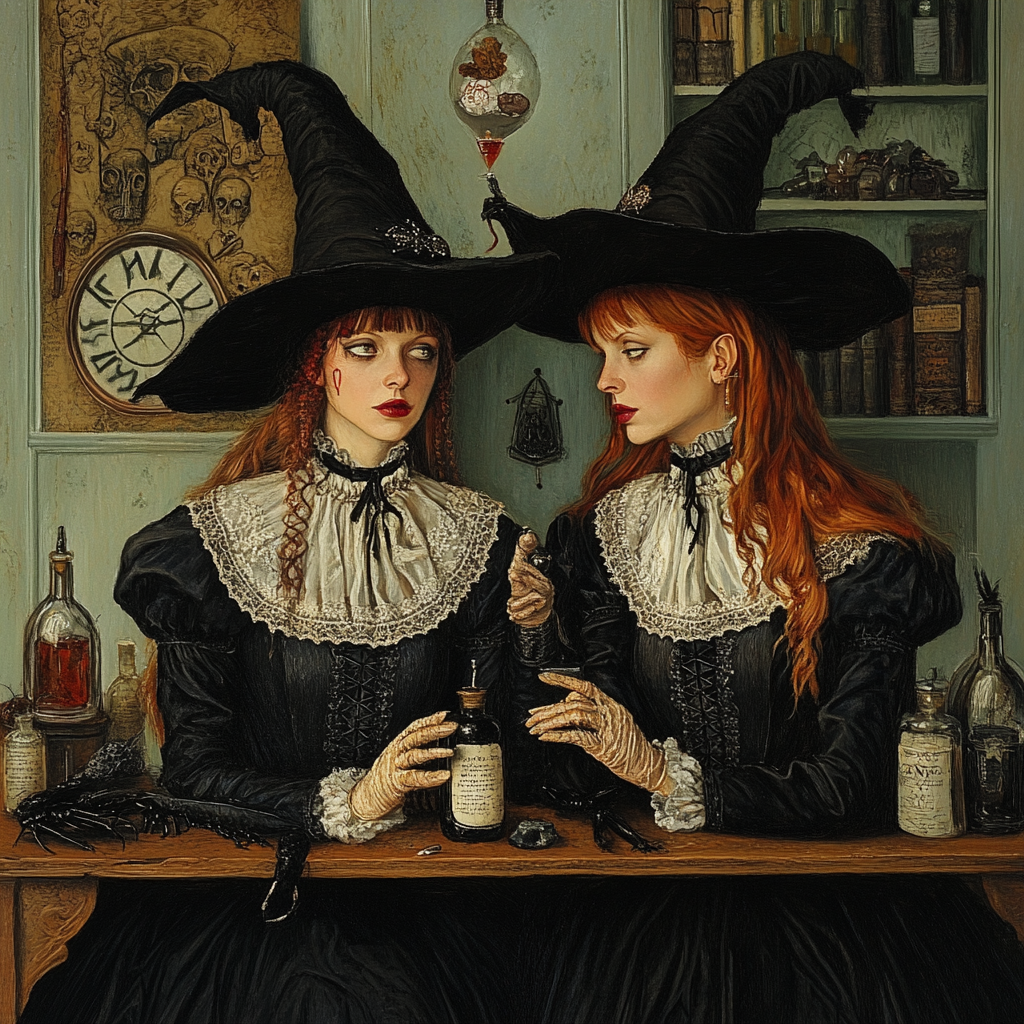Did you know that history's so-called "witches" were often female traditional doctors? The infamous witch hunts, which began in the late 1480s, were rooted in the systematic persecution of women practicing medicine and healing arts. This historical tragedy reflects not only the misogyny and power structures of the time but also the suppression of female medical professionals in favor of an emerging male-dominated field.
The Hexenverbrennung, or witch burning, remains one of the most chilling chapters in Germany's history. This period is closely tied to the folklore and traditions of Walpurgisnacht, a night steeped in pagan celebrations and legends. Together, these elements reveal a strong juxtaposition between cultural festivities and the brutal reality of witch persecutions.
The Twelfth Century
The story begins in 12th-century Europe, particularly in Salerno, the birthplace of modern medicine. At this time, both men and women were trained as healers and medical practitioners. However, by the Renaissance (1490-1520), universities became the epicenters of academic medicine, and women were systematically excluded. As male physicians rose to prominence, female healers became unwelcome competition. This shift coincided with the rise of witch hunts, which were deeply embedded in the capitalist and patriarchal systems of the era.
Persecution of Women
Accusations of witchcraft often stemmed from personal vendettas, religious zealotry, or societal fears. Women who practiced healing or exhibited knowledge outside the accepted norms were particularly vulnerable. They were subjected to horrific torture designed to extract confessions, which were then used as evidence in court. The trials were far from fair, and those found guilty faced brutal punishments. Burning at the stake became a symbol of these executions, a method as horrifying as it was symbolic of the complete eradication of the accused.
Thousands of innocent people-predominantly women-were unjustly accused, tortured, and executed in the name of eradicating witchcraft. This period serves as a stark reminder of the dangers posed by mass hysteria, intolerance, and the unchecked authority of religious and political leaders. These witch hunts were not isolated events but were systemic, driven by societal structures that prioritized control and subjugation over justice and reason.
Civil courts played a significant role in these persecutions, condemning the majority of accused witches to death. While men were occasionally accused and executed, the statistics are telling: 80% of those accused and 85% of those condemned were women. This disparity highlights the gendered nature of the witch hunts and underscores the patriarchal systems that fueled them.
The loss of so many women-many of whom were the only accessible healers for their communities-led to devastating consequences for public health. In an era when most people could not afford formally trained physicians, these traditional healers were essential. Their elimination created a vacuum in medical care, further entrenching societal reliance on a male-dominated medical system.
The witch hunts also shed light on the intersection of capitalism and patriarchy. By targeting women healers, authorities not only eliminated competition for male physicians but also reinforced a narrative that delegitimized women's roles in science and medicine. This period marks a significant moment in history where systemic oppression and discrimination were wielded to control knowledge, professions, and societal power dynamics.


Reassessing the position of witches in history
Today, the legacy of the witch hunts invites critical reflection. Decolonial approaches to history emphasize the importance of reevaluating these events through multidimensional perspectives. Such approaches challenge traditional narratives and seek to dismantle biases that have long shaped historical accounts. Understanding the witch hunts through this lens reveals the broader implications of oppression and the resilience required to reclaim marginalized histories.
Instead of perpetuating the demonization of "witches," we can honor their contributions as healers and acknowledge their unjust persecution. Their stories remind us of the importance of questioning dominant narratives and advocating for a more inclusive and equitable understanding of history. By recognizing their legacy, we take a step toward undoing the harm inflicted by systems of power and control.
As we reflect on the tragedies of the past, let us also celebrate the resilience of those who were silenced. The so-called witches were more than victims; they were pioneers of healing, knowledge, and care. Their contributions deserve recognition, not condemnation. In reclaiming their stories, we honor the truth and pave the way for a more just and compassionate future.
Desta - Decolonial city tour
+49 152 2108 6724
info@dekolonialestadtfuehrung.de or info@decolonialtours.com
Are you a journalist and interested in writing about us? Please feel free to contact us.
Imprint | General Terms and conditions | Privacy policy | © Copyright 2025 deSta- Decolonial city tour